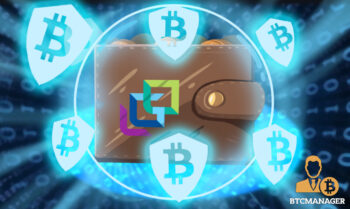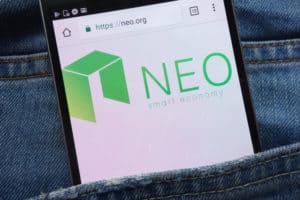2019-8-11 16:00 |
Blockchain, a simple concept yet so complex and diverse in its use-cases is still in a nascent stage. Numerous countries have come to realize the immense potential of blockchain and are tapping into the unexplored areas of this disruptive technology. It has potential similar to that of the internet, to bring about a radical transformation in the daily lives of individuals and corporations.
Why some countries are adopting blockchain but banning cryptocurrencies?A saying about blockchain and cryptocurrencies trending among many nations in the world is “blockchain is good while cryptos are bad.” Cryptocurrency transactions are encrypted, meaning only the parties involved have full disclosure to transaction details, while the prying eyes of outsiders such as regulators are unable to follow or intervene on transactions. While cryptocurrencies provide solutions for smooth cross-border transactions, they also are vulnerable to falling prey to illegal activities or crime, and are a source for tax evasion.
Countries such as India and China have banned cryptocurrencies while a few countries such as Japan and Korea are regulating them, so as to implement blockchain technology in government applications. Many believe that blockchain is all about cryptocurrencies as it is the underlying technology for operating cryptocurrencies. However, blockchain is much more than just a support system for cryptocurrency operations. The epiphany of Vitalik Buterin led to the advent of Ethereum Blockchain that supports numerous decentralized applications and is more robust than the Bitcoin blockchain in terms of functionality.
This functionality is what appeals to the governments of countries across the globe. The governments are in favor of adopting blockchain due to the innovations and technological advancements it offers. India too has decided to join the race and has plans to adopt the technology in various sectors.
Blockchain in IndiaAccording to Blockchain Report 2019 by NASSCOM, the adoption of blockchain technology in India is experiencing rapid growth and investments in blockchain-based projects, which have reached over $20 billion across various industries. The report further states that many Indian state governments such as those of Telangana, Kerala, Karnataka, Andhra Pradesh, and Maharashtra are supporting blockchain startups and projects and organizing conferences and hackathons on the topic.
As per data from the World Intellectual Property Organization, India stands sixth on the list of patents and trends in the blockchain space, with a total of 67 patents approval in 2018. Giants such as IBM, Mastercard, Microsoft, Intel, NChain, and Alibaba have filed for patents in India as well as in Australia and Canada.
A wave of digital payments has swept in ever since demonetization impacted the Indian citizens in 2016. There has been a huge shift from transacting in physical currency to digital payments through platforms such as Paytm, GooglePay, PhonePe, etc. Indians are gradually realizing the importance of digital money and leveraging seamless transactions and the cashless approach that digital money offers. With the large scale successful adoption of digital payments, India is now keen on moving towards adopting blockchain. This technology is emerging as one of the key innovations that will define the future of digital transactions in India and transform the FinTech landscape.
Industries in India That Blockchain is TransformingWith various industries adopting the technology in India, the Banking and Finance sector tops the list followed by industries such as healthcare, retail, logistics, et al. Blockchain has found its way into the Indian Fintech ecosystem and is making its presence felt in profound ways:
Banks in India were quick to realize the opportunities of blockchain for efficient banking operations and are efficiently using the KYC procedures offered by the technology. SBI leads as the first bank to use KYC and facilitate remittances based on blockchain, followed by banks like Axis, HDFC, ICICI that are implementing blockchain for its KYC and trade finance procedures. Apart from this, the Distributed Ledger Technology DLT also enables AML, the validation of land records and asset inventory audits. Inherent inefficiencies in the claim management system of the Insurance Industry lead to losses of about 1,45,30,00,000 USD per year. Implementing blockchain for claim management is the ultimate solution to mitigate these issues. For the same, Cognizant has partnered with insurance providers such as ICICI Prudential Life Insurance, SBI Life Insurance, HDFC Life, Kotak Life and more to develop a secure data-sharing solution built on Corda blockchain platform. Tata Consultancy Services (TCS), headquartered in Mumbai, has collaborated with Microsoft and R3 (an enterprise blockchain software firm), to advocate the adoption of blockchain across industries. It is further building five blockchain platforms that include track and trace, digital identity, asset monetization, assets in common, and tokenization. A project built for the public, IndiaChain, will transform the functionality of public administration using blockchain for efficient and transparent distribution of government subsidies, streamlined record-keeping, systematic tax monitoring, and regulated supply chain management. The project also has plans to step into the education sector to curb fraudulent degrees and certifications, and seamlessly manage massive amounts of data in the pharmaceuticals and healthcare industry. The Indian Real Estate Industry faces challenges in maintaining, searching and verifying title deeds, making ownership susceptible to fraud, due to its time-consuming process in transferring property and an over-reliance on brokers, banks, registration officers, etc. Blockchain solves these issues by digitizing land titles, where each property would have a digital address stored on the blockchain with details of occupancy, ownership records, finance, specifications of the property and associated legal disputes if any. Further, the decentralized nature of the technology eliminates the dependency of middlemen and instant transfer of property, while the blockchain-based smart contracts solve the issue of repetitive transactions or contracts. Potential Roadblocks in its AdoptionIs a journey without bumps even worth remembering? Although blockchain technology is promising with immense potential and scope for adoption, it still faces a few challenges in India.
The procedure of regulations and compliance on cryptocurrencies is still vague. While the Indian government discourages cryptocurrencies, it welcomes blockchain and encourages its implementation. In fact, in January 2017, RBI had issued a whitepaper in favor of applied blockchain technology by banks and had filed 3 patents by the end of 2017 in regards with creating a domestic ledger platform in association with National Payment Corporation of India. However, the adoption of blockchain largely depends on the adoption of cryptocurrencies and will accelerate when regulations for cryptocurrencies are well-defined by the government. The RBI and tax authorities in India are not in favor of cryptocurrencies and ICO’s, due to the issues related to tax evasion and a lack of control of the regulation over digital currencies. The RBI is globally recognized as the sole regulator of cryptocurrencies in India and although it has not taken a stance on cryptocurrencies yet, it advises caution on their use. Startups and projects based on blockchain technologies are skeptical about going forward due to the battle between Indian authorities and cryptocurrencies. Many supply chain vendors are not keen on adopting this technology due to the lack of awareness and trust issues in technology. Therefore, an accelerated adoption of blockchain requires more digitization and awareness. Presently, testing or adoption of blockchain applications is still limited to cryptocurrencies. A successful large scale execution of PoC (Proof of Concept) requires banks to hire blockchain experts or data scientists which is as costly an affair, compared to hiring software developers, making its adoption difficult. ConclusionBlockchainization in India is gaining momentum and will reshape the financial system for the better. On one end of the spectrum, blockchain as a decentralized ledger will mark an end to corrupted ledgers, bribes and unreasonable processing fees in the government structure. Therefore, the Indian economy is deemed to grow and prosper with funds invested in the right place with transparency. On the other end, financial illiteracy and lack of understanding or awareness about blockchain can lead to a few being misled or scammed, especially the rural population that does not understand the dynamics of the technology.
India‘s authorities have uncovered more cryptocurrency scams such as the BitConnect cryptocurrency scam which is connected to the alleged head of BitConnect Asia, Divyesh Darji, Times of India reports.
Change is inevitable but often resisted by all, especially when it is transformational. Although blockchain is in its infancy, India is pacing towards its adoption and inclusion. However, the provision of awareness and education programs for the literate as well as the illiterate population is essential for the successful adoption of blockchain in India. Implementing this technology across all spheres of business will certainly have positive effects despite the roadblocks in its adoption. Combined efforts of the government and diverse industries will aid policymakers in designing and implementing policies that will shape the future of this disruptive technology in India.
The post Shaping The Future of A Rising Economy: How Blockchain is Gaining Credibility in India appeared first on CoinMarketCap.
origin »Bitcoin price in Telegram @btc_price_every_hour
High Performance Blockchain (HPB) íà Currencies.ru
|
|








